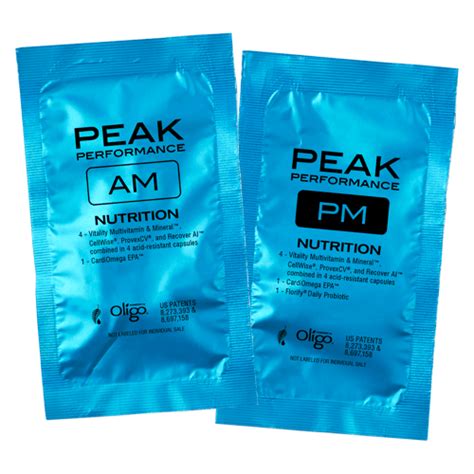Optimal male nutrition for peak energy, muscle & recovery?

Fueling the Male Body: A Blueprint for Peak Performance
For men striving to achieve peak physical and mental performance, nutrition isn’t just about eating; it’s about strategic fueling. Whether your goal is boundless energy, significant muscle development, or rapid recovery from intense workouts, the food you consume forms the bedrock of your success. This guide delves into the core principles of optimal male nutrition, providing actionable insights to elevate your physical prowess and overall well-being.
The Macronutrient Matrix: Building Blocks for Success
Understanding macronutrients – proteins, carbohydrates, and fats – and their roles is fundamental. Each plays a distinct, yet interconnected, part in energy production, tissue repair, and hormonal balance.
- Protein: The Muscle Master
Crucial for muscle repair, growth, and the production of enzymes and hormones. Aim for high-quality sources like lean meats, poultry, fish, eggs, dairy, and plant-based options such as legumes and tofu. Distribute protein intake throughout the day to maximize muscle protein synthesis. - Carbohydrates: The Energy Engine
Your body’s primary fuel source, especially important for high-intensity training and sustained energy. Focus on complex carbohydrates like whole grains, fruits, vegetables, and tubers. These provide sustained energy and essential fiber. - Healthy Fats: Hormonal Harmony
Essential for hormone production (including testosterone), nutrient absorption, and organ protection. Incorporate sources like avocados, nuts, seeds, olive oil, and fatty fish (rich in omega-3s).

Micronutrients: The Unsung Heroes
While often overlooked, vitamins and minerals are vital catalysts for thousands of bodily functions, impacting everything from energy metabolism to immune health. Specific micronutrients hold particular importance for men:
- Vitamin D: The Sunshine Vitamin
Supports bone health, immune function, and plays a role in testosterone production. Sunlight exposure and fortified foods are key, but supplementation may be necessary. - Zinc: The Performance Mineral
Critical for immune function, protein synthesis, and male reproductive health. Found in red meat, poultry, oysters, beans, and nuts. - Magnesium: The Recovery Catalyst
Involved in over 300 biochemical reactions, including muscle and nerve function, blood glucose control, and energy metabolism. Rich sources include leafy greens, nuts, seeds, and whole grains. - B Vitamins: Energy Boosters
Essential for converting food into energy. A diet rich in whole foods, meat, fish, eggs, and dairy generally provides sufficient B vitamins.
Hydration: The Foundation of Function
Water is often the most neglected nutrient, yet it’s fundamental to every bodily process. Adequate hydration supports nutrient transport, regulates body temperature, lubricates joints, and significantly impacts energy levels and exercise performance. Dehydration can lead to fatigue, reduced strength, and impaired cognitive function. Aim for at least 8-10 glasses of water daily, increasing intake with exercise and hot weather.

Strategic Timing: Optimizing Your Intake
When you eat can be almost as important as what you eat, especially around workouts:
- Pre-Workout: Fuel for Performance
Consume a meal rich in complex carbohydrates and moderate protein 2-3 hours before training to ensure sustained energy. - Post-Workout: Repair and Rebuild
Within 30-60 minutes after exercise, consume a combination of protein (20-40g) and fast-acting carbohydrates (e.g., fruit, white rice) to replenish glycogen stores and initiate muscle repair. - Consistent Meals: Steady Energy
Distribute your macronutrient intake across 3-5 balanced meals throughout the day to maintain steady blood sugar levels and prevent energy dips.
Beyond the Basics: Supplements and Special Considerations
While a whole-food diet should always be the priority, certain supplements can complement your nutrition strategy:
- Creatine: Enhances strength and power output for high-intensity activities.
- Whey Protein: Convenient for increasing protein intake, especially post-workout.
- Omega-3s: Support heart health, reduce inflammation, and aid recovery.
- Multivitamin: A safety net to cover any potential micronutrient gaps.
Always consult with a healthcare professional before adding new supplements to your regimen.

Practical Steps for Implementation
Translating knowledge into action requires practical strategies:
- Meal Prep: Dedicate time to prepare healthy meals and snacks in advance to avoid last-minute, unhealthy choices.
- Listen to Your Body: Pay attention to hunger cues, energy levels, and how different foods make you feel.
- Consistency is Key: Sustainable progress comes from consistent, healthy habits, not sporadic perfection.
- Seek Professional Guidance: Consider working with a registered dietitian or nutritionist for personalized plans tailored to your specific goals and needs.

The Holistic Picture: Nutrition, Training, and Recovery
Optimal nutrition doesn’t exist in a vacuum. It works in synergy with a well-structured training program and adequate sleep to unlock your full potential. Prioritize consistent, challenging workouts, ensure 7-9 hours of quality sleep, and couple it with the nutritional strategies outlined above. This holistic approach will accelerate your progress towards peak energy, robust muscle growth, and unparalleled recovery.

Conclusion
Achieving peak energy, muscle, and recovery as a man is an attainable goal that begins with a dedicated approach to nutrition. By focusing on quality macronutrients, essential micronutrients, vigilant hydration, and strategic timing, you provide your body with the superior fuel it needs to perform at its best. Embrace these principles, commit to consistency, and watch as your physical capabilities and overall well-being transform.









